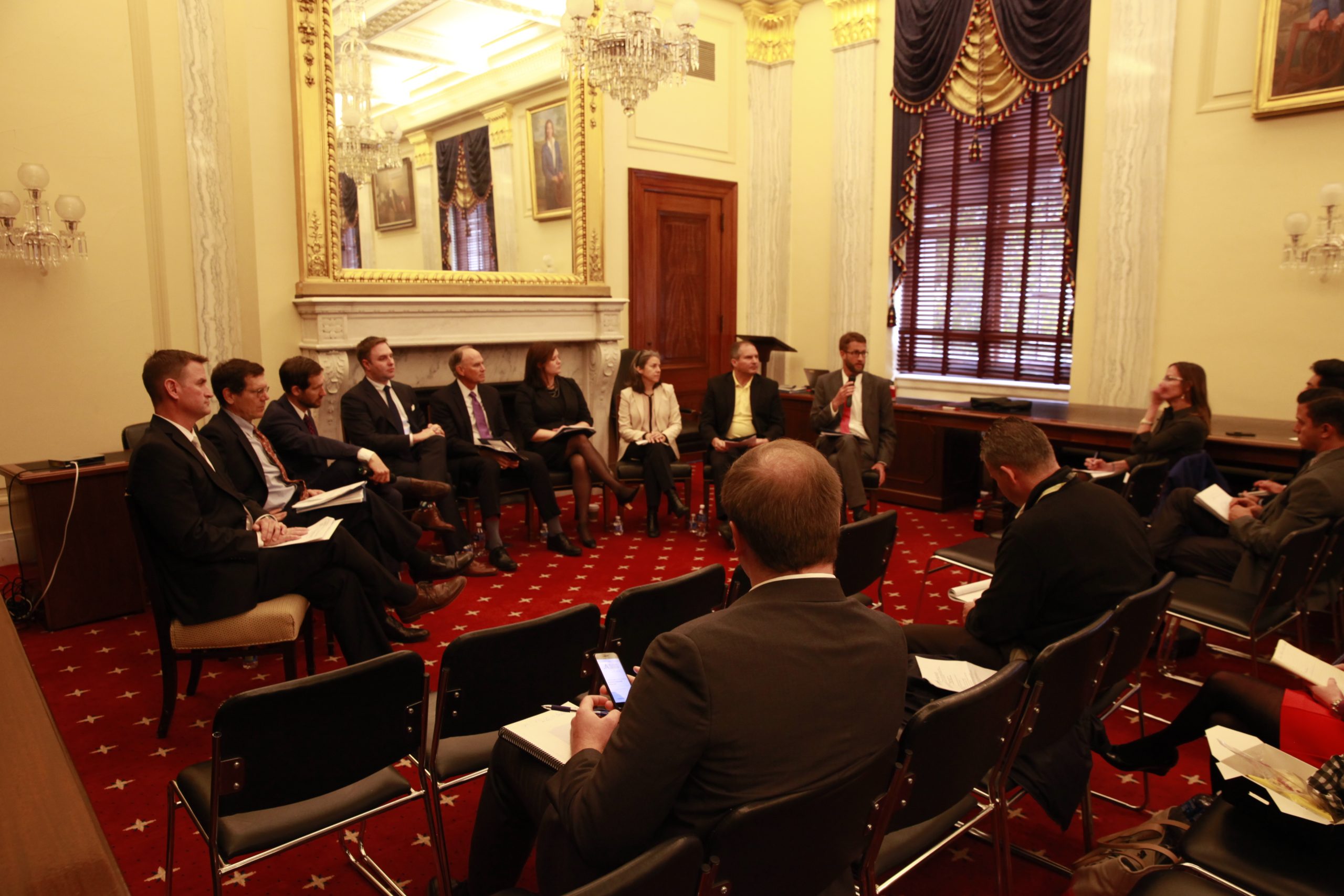
On Wednesday, Nov. 8, Fuels America hosted various representatives from the biofuels industry, as well as Hill staffers and Beltway media, for a roundtable discussion on the success of the Renewable Fuel Standard (RFS). In the wake of the EPA’s proposed 2018 Renewable Volume Obligation (RVO) and EPA Administrator Scott Pruitt’s Oct. 19 letter, biofuels executives provided updates on the latest technology, investments, and deployment.
Brooke Coleman, the Advanced Biofuels Business Council‘s executive director, served as moderator while panelists from Novozymes, Pacific Ethanol, Quad County Corn Processors, POET, Edeniq, ICM, BIO, and Enerkem talked about how biofuels like ethanol keep the world’s cars going while also keeping the environment healthy. Adam Monroe, president of Novozymes North America, said that Novozymes’ technology has brought down the cost of enzymes for cellulosic production by 90%. Novozymes is a Danish company, so Monroe stressed the fact that this energy sector has drawn investment into the United States, which creates domestic jobs.
Tom Koehler from Pacific Ethanol brought up the point that most conventional bio-processing plants are ready to add cellulosic technology to their facilities. These integrated biorefineries are already making coproducts such as corn oil, low-carbon ethanol, biogas, and more.
Rob Walther, vice president of government affairs at POET, stressed the importance of a strong RFS as a way to strengthen investment and confidence in the biofuels industry. Producers need confidence that the market will also continue to be strong.
Monroe from Novozymes also made the point that cars in Brazil are already mostly running on fuel that has an ethanol blend rate of 27.5% ethanol, so the myth of the “blend wall” in the U.S. is unfounded. China also recently mandated 10% ethanol blending in their fuel supply, which shows that the market is ever-expanding.
Marie-Helene Labrie, senior vice president of government affairs and communications at Enerkem in Canada, pointed out that 60 countries now use renewable fuels, so the U.S.’s RFS has led the way and been very influential. She also believes that policy certainty is key to advancing the industry, and wants to make renewable fuels more available in urban areas. Business and investment is dependent on policies like the RFS to give producers a market and send signals to investors.
These leading innovators in advanced biofuels also recently sent President Trump a joint letter thanking him for his commitment to the RFS: Read it here.